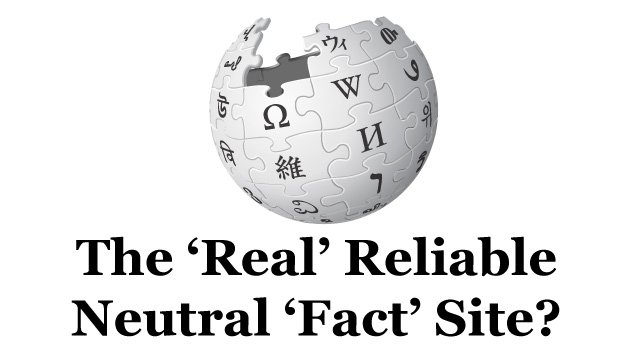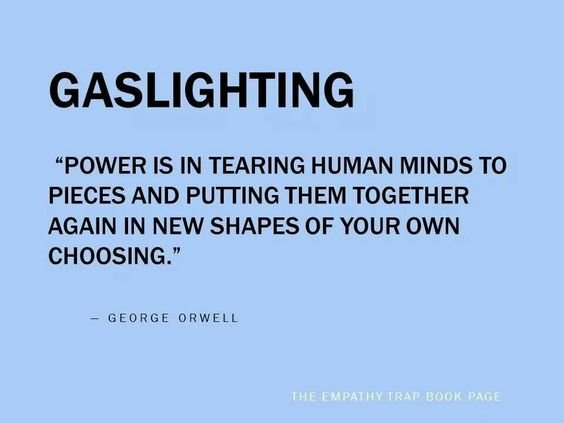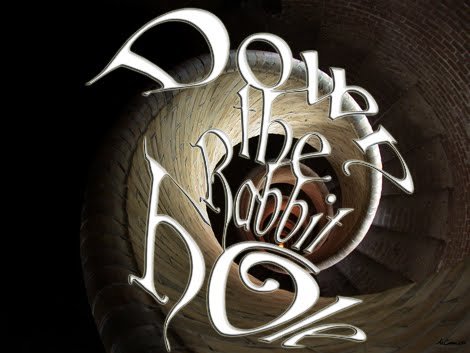Wikipedia's "Facts" Depend on the Language Version of the Site [Fakenews News & Analysis]
Go learn from Wikipedia, the free encyclopedia, right? But, where does the information come from?
In a new research paper called Wikiwhere, it's been uncovered that articles on the same topic, yet in different languages, are using different sources of information to create the Wikipedia content. This can be fine, but what if the sources contradict and give opposite accounts? One of them must be false... or both.
Wikipedia, real or fake news haven?

A Wikiwhere website has also been developed by Martin Körner and his team at the University of Koblenz-Landau, Germany. It allows users to track down where editors get their sources from in various languages. The goal was to analyze the same topic in different languages to see if people were influenced by different sources.
It's true there are differences in how languages reference reality and some meaning can get confused or lost in translation. But this is showing something else.
For example, an English page about "Russia’s annexation of Crimea", had 24% of reference links from Ukranian news sources, and 20% from Russia. But the German version had 10% Russian and only 3% Ukrainian sources.
What does this show?
It shows that people around the world can get their information from one allegedly "trusted" source of information, Wikipedia, yet end up with different information anyways. Sometimes, the differences might be minor, insignificant to the overall understanding and reality of the situation, but other times it can create barriers.
Different versions of "truth" emerge and that leads to conflict. "My truth" is more real than "your truth". But... there is only truth, reality, existence, and if your sources are unreal, then your argument will be unreal, even if you believe it to be real. The problem is the people who don't know how to think or learn properly. Which unfortunately in the indoctrination system is most of us, unless we actively seek to develop and evolve our capacities of consciousness.
This is a problem of trust, faith, loyalty and belief in getting information from others.
This is the problem with the fakestream (mainstream) fakenews. They have such total encompassing influence over what people have faith, loyalty, trust and belief in to accept as reality.
The news shows it, and people accept it. No real thought. No real processing in consciousness. No curiosity, doubt or questioning to verify.
Wikipedia has taken over the fake mainstream news on the internet, and it's your one-stop shopping for the internet. But instead of people understanding the internet as a place where anyone can say anything, true or false, and that they need to verify things though other sources, people just accept what Wikipedia says.
Some sources might not be available in certain languages. This makes access to sources harder to come by. And this is where WikiWhere can come in to help.
WikiWhere tracks the language, IP, and domain of the URL. They want to know where the news source is located, in what country. I am all for multiple sources, with the goal of arriving at the truth, the reality of the matter.
Shane Greenstein from Harvard Business School who has made studies on Wikipedia's reliability, says multiple sources are needed. True. But here is what he says in full:
“You need multiple editors to debate and identify different points of view, and in the absence of a large supply of those editors Wikipedia won’t perform very well”
He adds that the "encyclopedia needs a variety of sources to maintain a neutral perspective and avoid becoming one-sided".
Being "one-sided" is an issue, and the need to maintain a "neutral perspective". Neutral. All perspectives are just as valid as the other as long as they have "reliable sources", like the "real news' from the mainstream news, right?... LOL. Where is the one-sided focus on truth? No mention of that, ever. They are only concerned with not being one-sided, with being neutral, and impartial,not taking sides, etc. Double-think can set in well when you trust "reliable" sources that give you contradictions.
So do we just present conflicting or contradictory information because it comes from "reliable sources"? Or do we reject one if another is more "reliable" in the mainstream sources? Or do we actually think, process, evaluate, discern and judge information before we go around repeating it? Hmmm.... does that really seem like a difficult methodology to understand and apply in life? Isn't it obvious that we should evaluate before simply regurgitating, repeating and outputting information we input?
They want to say they are trying to present "reliable" information from sources. They emphasize the growing threat of fake or biased news... I guess it's better when you just present all "reliable" sources only, ignore the rest, while pretending to be unbiased, and claim you paradoxically present "both sides" of a contradiction for the viewers to judge themselves while also claiming to be the "real" news as opposed to "fake" news? They aren't presenting reality as it can be verified to be. They are simply presenting reality through information others told them. No real thinking. No real judgment about reality and life.
If you're simply presenting perspectives, views, and many sides that oppose/conflict, then you aren't presenting the real news of reality. You're presenting information alone. I suspect most of the news anchors and reporters are stuck in double-think unable to reflect upon and analyze themselves to such a capacity.
To "interrogate the neutrality of fact-focused sites", adds Greenstein. How can sites be fact-focused, to present information that is one-sided towards "reliable" sources and ignores the "unreliable", while also saying they are neutral presenters of all information, not one-sided, for viewers to discern on their own? That's a good twilight zone gaslighting type of spell the media casts on our consciousness to confuse us without us even realizing what they are doing.
Gaslighting

sourceIt's only valid for you if you accept their false premises that their sources are the only "reliables" ones, and everything they reject as information is an "unreliable" source. It easy to decode once you look into reality more, that most of the time "reliable" is just a euphemism for "establishment", standardized" and "acceptable" to talk about.
Meanwhile, people champion for neutral "unbiased" Wikipedia, where they get most of their sources of information from one-sided mainstream "real" news or academic sources that have their worldview shaped by the current condition and establishment. If someone adds a source that is deemed "unreliable", "biased", then the editors remove it. Anything these people decide to remove, can be, with the justification they choose. Wars start, where people aren't trying to get at the facts of reality because they are attached to falsity, and then whole section gets nulled.
Yes... that will produce honest truthful information that gets to the hidden darker aspects of reality? No, it won't.
If you want establishment accepted information, then you can trust Wikipedia to give you that. If you want to dig deeper, you have to go elsewhere, because the truth isn't always found in "reliable" sources. And yes, the internet is full of crap falsity too, really "fake" news sites as well. But there is a lot of information that is true as well.
I prefer to say what I know, and then why I know it, not simply repeat information as a "reporter". I judge and evaluate. Why would I simply give you a bucket of junk and gems when I can just give you some gems? If you want to learn more, great, then please go do learn more, don't take my word for it, to simply believe me.
Explaining why I understand what I understand can take a long time though. That's why I have done 7 hour audio presentations of aspects of understanding existence and consciousness :) But I try to keep it short on Steemit :P
Thank you for your time and attention! I appreciate the knowledge reaching more people. Take care. Peace.
References:
- Wikipedia ‘facts’ depend on which language you read them in
- Wikiwhere: An interactive tool for studying the geographical provenance of Wikipedia references
- Wikiwhere
If you appreciate and value the content, please consider:
@krnel
2016-12-13, 4:57pm


I only trust half of what Wiki says like nearly everywhere else these days. RS your post -- nice work.
Thanks ;). Yeah I read it too, but like I mention, just for the academic and other basic understanding to give a general synopsis. Some posts are good, but there are topics where its red flag and redacted.
Are there enough trusted source for such a huge project?
Is there any trusted source at all for all of the people?
And it's not just about Wiki. You cannot trust in a single source, and you don't have a life to spend only with one question to estimate its truth answer. We have questions minute by minute...
I think the argument is that the narrative is controlled, and therefore not very trustworthy. You cannot trust in a single source? Well then we know how this conversation will go. Why should you trust anything anyway because the Internet.
I mean, you cannot trust in only one source. And I've written what I've written to provoke anyone's thought about all of the trust thing.
Anyone could tell that Wikipedia is fake until there are enough trusted sources for all articles, and all of the people in the world could make consensus on which source tells the truth. So forever, because that will never be true.
But Wikipedia is more reliable than (think here a big number under 100 because I don't want it seeming like a fact) percent of all of the junk webpages, click-bait shits, Facebook craps where people think they finally found the truth about everything, because they sounds extraordinary and logical.
However, I also admit Wikipedia's weaknesses. The biggest one – and it's hard to say – that it gives everyone freedom (oh, not hard, it is terrible to say!) :( Since it gives any language independence about rules, communities, etc., the first problem, that is going hand-in-hand with languages, is nationalism. Just see how different nations teach history in the school... That is why there is only a little difference e.g. in the tech related articles, but could be huge in political ones.
Controlled? it is open source.
The narrative on wikipedia is clearly one sided, IE controlled. So what if it's software is open source, the content isn't "open source" in the least.
sorry, wikapedia i mean
That is true.))) Recently we found out that with my husband discussing such character as Che Guevara. Completely opposite information.
Damn, that sucks. Now you know they don't allow certain knowledge on the encyclopedia.
aha((
I had stopped using wikipedia about a year or so ago. I think it was a Tedx talk where it was touched upon how controlled it really is. They stated where an author of a book tried to correct his books page. It was always changed back. After hearing this I knew it was just another media control tool. Yes, the CIA strikes again.
well there's something new!
Is there a steem powered wiki?
Nope.
This post has been ranked within the top 50 most undervalued posts in the second half of Dec 13. We estimate that this post is undervalued by $8.58 as compared to a scenario in which every voter had an equal say.
See the full rankings and details in The Daily Tribune: Dec 13 - Part II. You can also read about some of our methodology, data analysis and technical details in our initial post.
If you are the author and would prefer not to receive these comments, simply reply "Stop" to this comment.
Nothing is really black and white.....duality is a creation.
You can really only trust your discernment. Which means making your analysis on both the accumulation of evidence and what feels true.
Funny how we call evidence proof...when its really just evidence...
Unless it clearly is black or? white. I think it's funny because you call yourself coloured-content and the remark you made is obviously ambiguous, it says much of nothing.
How can you know anything? How can you trust anything but your feelings and discernment? How can you be precise with words, how can you be specific with thoughts and ideas if you cannot settle on the basic definitions?
Discernment means to judge well, it translates to making valid inference, why? because it's in its definition: >..stresses accuracy (as in reading character or motives or appreciating art)
https://www.merriam-webster.com/dictionary/discernment
and why pair it to feelings, it merits pointing that out, are we to trust our judgement or our feelings, two polar opposites?
Thank you.
Yes discernment means to judge well...to judge equivalently.
Meaning it is possible to judge through the discernment of evidence and logic, as well as with feeling.
I don't believe they are polar opposites.
Intuition is a very real thing....
It means to judge well, not to judge well meaningfully. By definition feeling, noun or verb has no synonym with discern, discernment. In my opinion, in my "feeling", in my "intuition", the pervasive uncertainty of most of the meanings feeling has attributed to it, to say that you can discern with feeling is like saying you can see with your touch.
Thats not true. I can discern if someone is going to rob me with feeling....I've been robbed before and would have been fine if id trusted my insticts aka feelings.
You can judge with your feelings, so instead of saying that you're feeling, you have a sensation that you will be robbed, a doubt, a hankering or a feeling, or even intuition or instinct, the feeling that you have is in fact a mental faculty that allows you do see, and not just touch, because sight and touch AREN'T interchangable, or are they also, just like feeling and discernment you can say "i can discern that I will be robbed, simply because I have a feeling " or "I have a feeling that I will be robbed, simply because I judge well". What a laugh. What keeps you from admitting that your comments here are nonsense, that you cannot even admit that discernment doesn't mean to judge well meaningfully like you said, and that figures of speech or not, there are things which can be judged well, as being either black or white, or both, but I don't have to feel my way into the conversation to KNOW that.
To judge well meaningfully doesn't define discernment.
To say you can judge with feelings, or you can feel with judgement is exactly like saying "I can feel with my taste". You yourself have said that "I can discern if someone is going to rob me with feeling....I've been robbed before and would have been fine if id trusted my insticts aka feelings." You have yet to tie discernment with feeling, or explain how you reached that observation: that you will be robbed,and why you disregarded that observation formed through judging well with feeling, because your own admissions more or less says " I don't trust my ability to judge well based on feelings".
I live in New Mexico. In the public schools here, Wikipedia is considered an unreliable source for research. Students cannot use it or at least cite from it. I'm sure they use it.